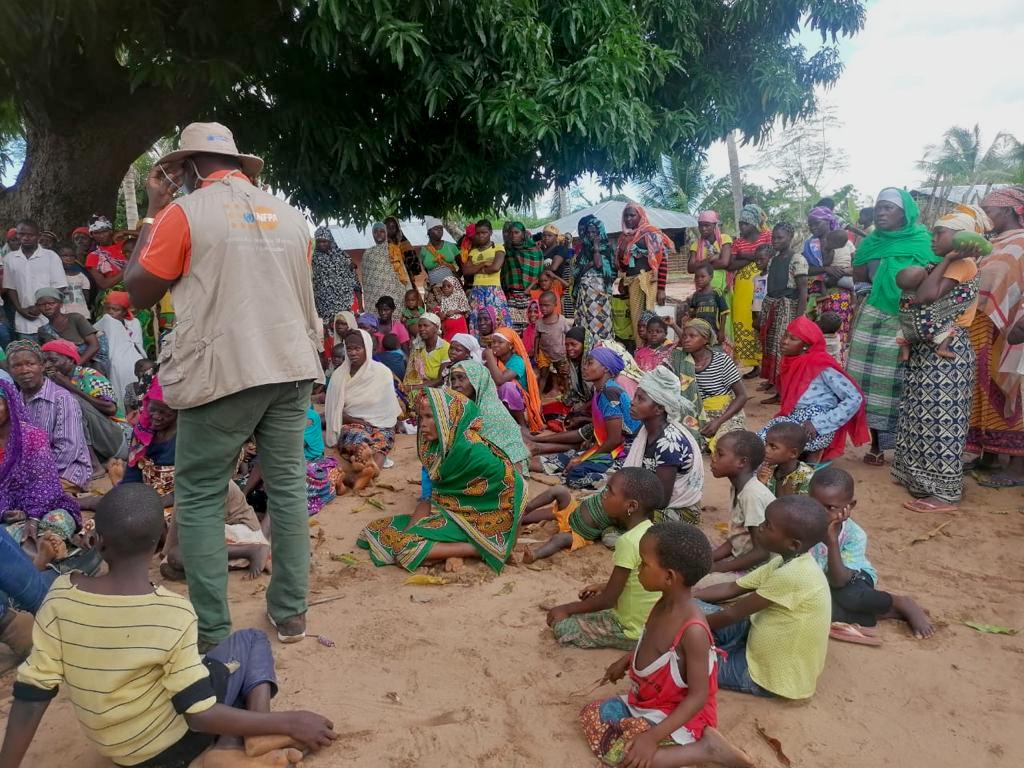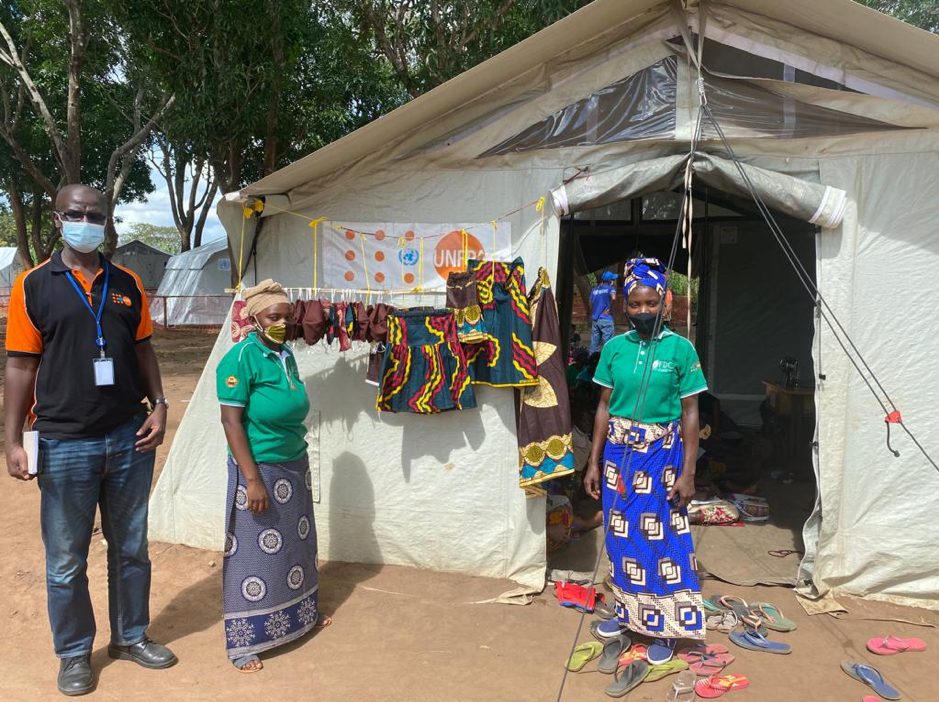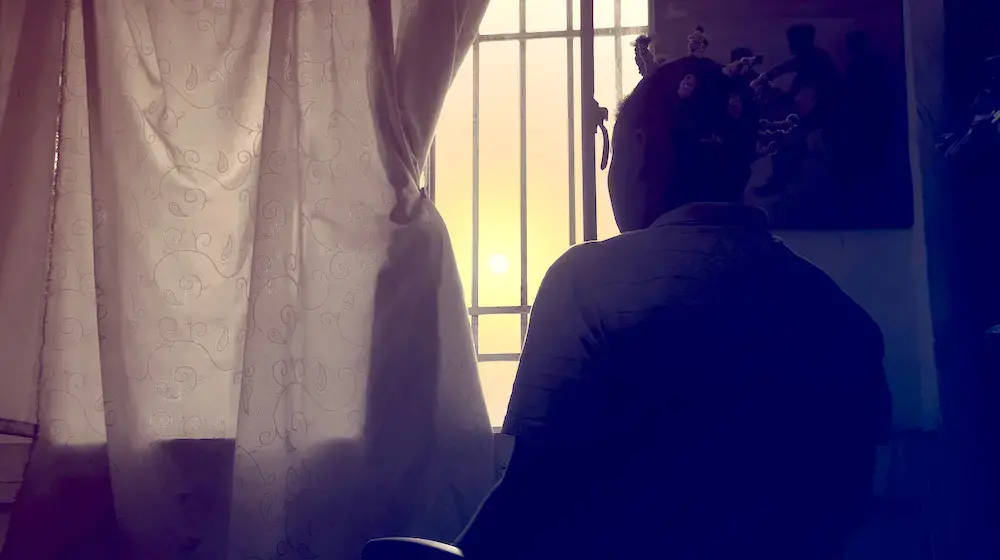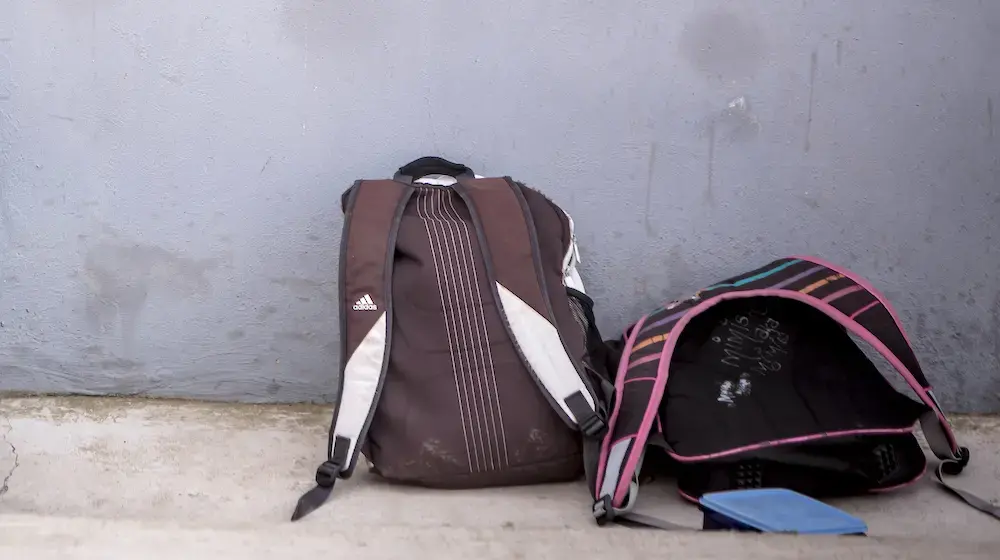PALMA, Cabo Delgado, Mozambique—It’s a situation that no woman could wish to find herself in. Caught in conflict in northern Mozambique, displaced women wanting to give birth safely in health facilities are being sent back to their temporary homes, where they may not have the medical support they need to deliver their babies.
“One of the major challenges is access to medicines and medical care at health facilities,” says a displaced woman from Palma District. Many women have been unable to deliver at these facilities due to a lack of space and the precarious situation of the health units, she says. She warns of a potential increase in child marriages, often considered a last resort for families with many mouths to feed.
More than 67,000 people have fled Palma District due to the conflict and violence that began in March (IOM Displacement Tracking Matrix, 4 June 2021). Of the displaced population, more than a third are women and nearly half are children. They flee on foot, by bus or boat to neighbouring districts and the provincial capital of Pemba in search of safety and support.

Women and girls worst impacted by violence
“With girls out of school, and families coping with economic loss and hardship, the risk of child marriage and teenage pregnancies is of increasing concern,” said Andrea M. Wojnar, UNFPA Mozambique Representative. “As girls are at risk of giving birth too young and potentially being subjected to other harmful practices, collective action is needed to reduce the risk of maternal and newborn mortality or complications, particularly as health facilities throughout Cabo Delgado are closing, are limited in operation, or lack essential staff, supplies and equipment.”
As girls are at risk of giving birth too young and potentially being subjected to other harmful practices, collective action is needed to reduce the risk of maternal and newborn mortality or complications.
“Palma district has been cut off from the rest of the country due to insecurity,” confirmed Dan Onyango-Maina, UNFPA Mozambique Humanitarian Coordinator based in Cabo Delgado, who travelled to the district in February. “Increased humanitarian support is desperately needed for women and girls who lack access to reproductive and maternal health care, and are at risk of sexual and gender-based violence.”
Supporting dignity of women and girls
Many displaced women and girls are arriving at displacement sites or in host communities with very few personal or essential items, having fled the violence at a moment’s notice. In response, UNFPA Mozambique has supported the government in the distribution of dignity kits to almost 1,300 women and girls who arrived from Palma in recent weeks. These kits provide for their menstrual health, sanitary, and female dignity needs. For safety and protection, the kits also contain whistles and flashlights to aid women and girls who move on foot at night in host communities and displacement camps, and information on gender-based violence (GBV) prevention and services available for GBV survivors.
Since January, more than 26,000 women and girls in displacement sites and host communities in Cabo Delgado have received maternal and child health-care and family planning services through remote-based mobile clinics, supported by UNFPA and local partners, and led by the government.

UNFPA also supports the government with the installation and running of women-friendly spaces for displaced women and girls. These offer health-related information, counselling and psychosocial support for survivors of GBV, as well as income-generating activities.
UNFPA is appealing for $12 million to provide emergency life-saving health and protection services for the women and girls who have been displaced by the recent attacks in Cabo Delgado, including their host communities. To date, 30 per cent of the appeal has been funded.





